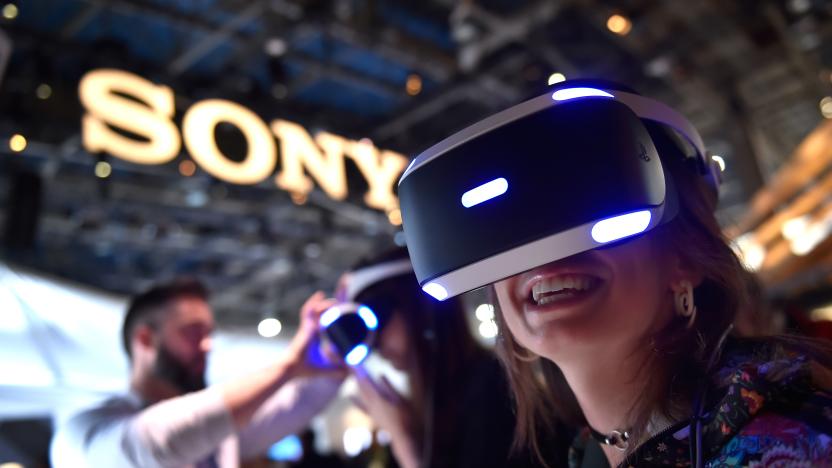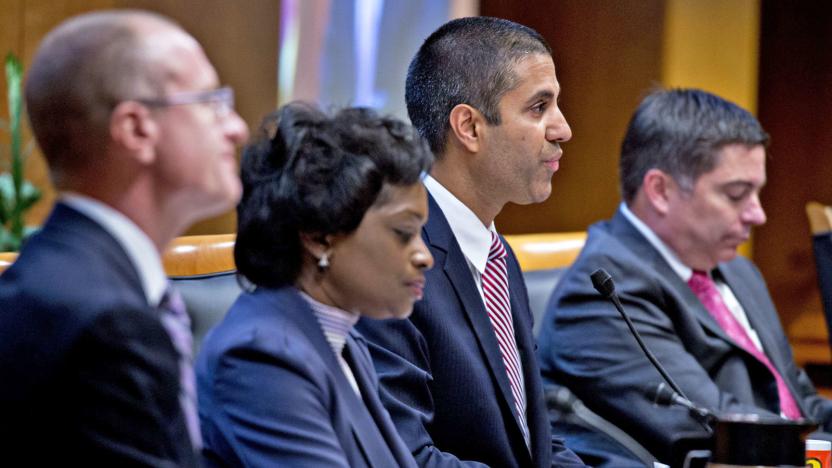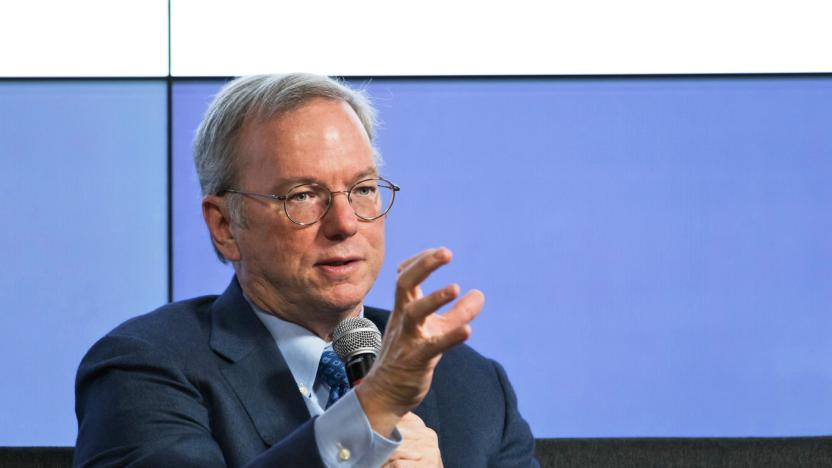innovation
Latest

Can Sony reclaim its former glory?
The real question facing Sony now: How can it return to being an innovation leader?

Airbitat's Compact Cooler promises 'deeply cooled' energy-efficient AC
You might not think of your air conditioner (AC) as contributing to climate change, but typical AC units use quite a bit of power, which leads to higher greenhouse gas emissions. In a vicious global warming cycle, as the planet gets hotter, more people will turn to air conditioning. So, companies like Airbitat are working on more efficient cooling methods, like the Airbitat Compact Cooler, which just won a CES 2020 Climate Change Innovator Award.

Panasonic's deodorizer freshens your shoes while you sleep
In a world where self-driving cars are taking to the roads and computers are having casual conversations with salon receptionists, it's easy to forget that many companies are still working hard on solutions for low-tech, everyday problems. Smelly feet, for example. You'd think we'd have that nailed by now, but as Panasonic's newest launch demonstrates, there's still a lot of innovation to be had in this arena. Forget simply slapping a couple of scented insoles into your kicks -- Panasonic, the brains behind the deodorizing coat hanger, wants the business of shoe deodorizing to be a tech experience.

Trump’s science and tech report focuses on deregulation
Today, the Office of Science and Technology Policy (OSTP) released a report on what it considers to be the Trump administration's achievements in advancing science and tech over the past year. "The Trump administration is committed to advancing technological development and conducting research and development to ensure national security, grow the economy, create well-paying jobs and improve the lives of Americans across this great nation," says the report. "Over the past year, OSTP has led coordinated administration efforts to promote emerging technologies, empower Americans to innovate and defend American technologies abroad."

FCC hopes opening up communication airwaves will boost innovation
Today, the FCC voted to move forward with a proposal to open up communications spectrum beyond 95 GHz. In a statement, it said that spectrum above this range has been thought to be at the edge of what's usable, but now it wants to provide different levels of authorization to use the spectrum to, as Chairman Ajit Pai said in a statement, "promote innovation and help put this spectrum to its best use." Pai noted that some might be skeptical as to whether spectrum above 95 GHz can actually be used, but he added, "The point is that we must be open to new technologies that haven't even been developed. And while we don't know precisely how far the laws of physics will permit us to go, we do know there's potential and interest. Engineers and entrepreneurs need to have the ability to push the envelope."

Carphone Warehouse says a lack of 'innovation' is hurting sales
Your smartphone is probably the most important technology purchase you'll ever make. It travels everywhere you go, delivers the sum of total human knowledge and helps you capture important memories with photos and video. In fact, they're so good at providing these features that you might not feel the need to upgrade when the time comes. That, or the next-generation devices designed to replace them simply don't innovate enough.

Recommended Reading: How reliable are internet movie ratings?
'Ghostbusters' is a perfect example of how internet movie ratings are broken Walt Hickey, FiveThirtyEight The reboot of the 1984 classic hits theaters this weekend, but the criticism of the new Ghostbusters has been flying for months. FiveThirtyEight takes a close look at internet ratings for the film as a way of showing that you shouldn't always rely on those numbers when making a decision about which movie to see. "People put far too much faith in numbers that are preliminary, decontextualized and, in the end, oversimplified," Hickey concludes.

DARPA's 'Improv' initiative crowdsources solutions to DIY terrorists
The quality gap between technology available to the Department of Defense and regular citizens is rapidly shrinking -- just look at UAVs. While that's a good thing for hobbyists, it also enables terrorists (either external or home-grown) to craft increasingly sophisticated devices and weapons, like IEDs, which is why DARPA launched its "Improv" initiative on Thursday.

Alphabet's Eric Schmidt to lead military innovation board
Alphabet executive chairman Eric Schmidt will soon head up an advisory board for the US military. Defense Secretary Ash Carter revealed today that Schmidt had agreed to lead the Pentagon's new Defense Innovation Advisory Board. The group is tasked with leveraging the innovation of Silicon Valley to the US military by bridging the divide between the government and the tech industry. Secretary Carter announced the board during the RSA cybersecurity conference that's taking place in San Francisco this week, where he also plans to meet with the Schmidt.

Samsung expands the search for its next hit with 'innovation team'
Virtual reality, drones, 3D printing, robotic telepresence and self-driving cars. A nice selection for tech buzzword bingo, but also just some of the things that Samsung's new product innovation team is already tackling in a bid to come up with the next (big-selling) thing -- its next Galaxy. "Samsung's previous success was mostly due to releasing products that are competitive in pricing. This is an old business formula...": said one official, unsurprisingly not named in the Korea Times report. And while, barring an initial foray into VR, these could all be very new business avenues for Samsung.

Working As Intended: But I already have that game
Back in 2001, I desperately wanted out of EverQuest. I hated the gameplay. I hated the community. I loved my guildies, but I hated what our guild was becoming, consumed by a grindy rat race so different from our roots in Ultima Online. When Dark Age of Camelot offered a way out, I took it, dragging as many guildies as I could along with me to a game where PvP and territory control, not camp checks and plane raids, ruled the day. Some of them didn't come with us, and I couldn't understand why they wouldn't jump at the chance to start fresh, to be rid of a self-destructive community and gear grind. What was wrong with them, I wondered, that they'd stay in some old thing rather than play the new shiny? Dozens upon dozens of MMOs later, I finally understand: They already had that game.

Chaos Theory: New Sidestories show The Secret World's innovative side
When I talked about 10 of the most compelling missions in The Secret World last time, I purposefully left out the new Sidestories mission packs. One reason is that I've already spoken a bit about Further Analysis; the other is that the third and latest pack was slated to arrive soon and I intended to talk about all of them together. As it turns out, it actually released the same day that Chaos Theory did! Since then, I've had the chance to dive in and experience some of those missions. As usual, I was not disappointed. Besides providing the expected interesting new characters and great stories, The Last Pagan highlighted something else: TSW continues to be innovative!

Meet the judges of Engadget Expand's Insert Coin 2014 competition
We know Insert Coin contestants shed blood, sweat and tears to complete their masterpieces, so we make sure they get scrutinized by people who know what they're talking about. For this year's event, we gathered a group of judges from different backgrounds to look at, poke and analyze every entry. They're in charge of making sure that the best entries get the coveted prize money and that the winners embody what Insert Coin's all about. Cyril Ebersweiler is the founder of HAXLR8R, an accelerator program for hardware startups based in San Francisco and Shenzhen, China. He also juggles several projects in both countries, including mentoring a number of startups and serving as a board member to Leap Motion. Rahul Sood is just as tireless as Ebersweiler and currently serves as the global head of Microsoft Ventures. Some might remember him as the creator of Voodoo PC, which was eventually snapped up by HP. Ben Einstein describes himself as a "lover of hardware" and is the Managing Director of Bolt, a start-up incubator that focuses on (you guessed it) companies that work on hardware. Devindra Hardawar's probably a familiar name if you tend to visit a certain online publication other than Engadget -- he's a Senior Editor and the lead mobile writer at VentureBeat.

Let us fund your hardware dreams: Submit your project for the 2014 Insert Coin competition
It's May 16, and you know what that means? You only have 133 days to submit your Insert Coin entries and get the chance to win some serious cash to fund that childhood dream or that brilliant idea you just know will be huge. We want to hear about that innovative creation -- and we'd love if you can send it in before the submission deadline on September 26th. Just like last year, the Judge's Choice will get a $10,000 prize, while the Reader's Choice will get $15,000. This time, though, we don't only accept pre-crowdfunded projects: those currently being crowdfunded or in their post-crowdfunding stages are very much welcome, as well. Engadget editors will also review the winning products to drum up interest and hopefully help you reach your funding goal like DiWire Bender and Ziphius (our first ever Insert Coin winner!) did in 2013. Before we crown those two projects that embody the innovation we're looking for, however, we're first choosing 10 that stand out the most among the crowd. If you end up as one of the 10 semi-finalists, we're giving you Expand New York tickets, a $1,000 travel stipend, a space on the show floor and a chance to demo your invention in front of live and online audiences. Hopefully, you've got your stage fright under control by November to win both readers and judges over. Now that we've got you pumped to share your brainchild with everyone, get that project ready for victory and head over to our submission page.

Microsoft's Innovation Center to school citizens on technology, help startups in Miami
Miami is going to get a whole lot geekier if Microsoft has its way. The software giant has recently announced plans to open its first US-based Microsoft Innovation Center (MIC) in the sexy city later this spring, with more stateside locations to follow. The Miami MIC will focus on four different audiences: academia, the local Latin American community, government and start-ups, and it's said that each group will benefit in its own way. Students, for example, will have a place to net specialized training and pick up valuable tech-related job skills. Will Smith's favorite burg will also serve as a part of Microsoft's CityNext program, which uses locals to create "healthier, safer and more sustainable" places to live. Only time will tell if the siren song of South Beach will have an adverse effect on any of the above, though. [Image credit: Shutterstock]

A spoiled generation of tech observers yearn for Apple innovations on-demand
It's a funny thing; the more technology advances, the more impatient people become in anticipation of even newer and greater innovations. The result is an abundance of analysts, bloggers, and pundits who may very well be the crappiest generation of tech observers we've seen to date. Of course, I'm borrowing some phrasing ingeniously employed by comedian Louis CK who, while appearing on an episode of Conan, explained in hilarious detail why so many of us are unappreciative dopes when it comes to technology. When it comes to the folks that cover Apple, this dynamic is for whatever reason amplified. The "what have you done for me lately" attitude is pervasive amongst talking heads who seemingly employ a running counter that precisely measures the last time Apple released a game changing product. It goes without saying that other tech companies are free from this burden. When's the last time you read an article arguing that Google, Facebook, or Samsung need to start innovating lest they become irrelevant? Yet with Apple, we're constantly bombarded with asinine articles like "Apple must release an iWatch now or the company is doomed." Believe it or not, but such a blurb actually surfaced last month courtesy of Trip Chowdhry, a managing director at Global Equities Research. "They only have 60 days left to either come up with something or they will disappear," Chowdhry said during an interview with CNBC. For whatever reason, the tech community at large affords more credibility to companies that simply throw everything at the wall in an effort to see what may, by pure happenstance, catch on (Samsung) and companies that are more open about showing the public what they've got cooking in their research labs (Google). Apple may be an immensely private company, but its modus operandi is hardly a well-kept secret. The company releases finished products that it believes will fundamentally have a positive impact on the way people interact with technology, and in the process, make them truckloads of money. As a result, Apple doesn't tend to release poorly conceived and ill-executed products like the Samsung Galaxy Gear -- recently voted by many as the worst tech product of 2013 -- nor does it release unfinished products that feature cool technology like Google Glass. Consequently, Apple works tirelessly behind the scenes to come up with the next big thing, only to be greeted in the interim with a chorus of doom-and-gloom predictions from folks who simply don't understand how Apple works. Recently, the Wall Street Journal ran a fascinating article featuring an interview with Greg Christie, a senior software engineer at Apple. The article gave us an interesting glimpse into the timeline associated with the development of the original iPhone. The article tells us that Greg Christie was originally asked to join Apple's secretive iPhone project in late 2004, with the project not being officially green-lit by Steve Jobs until February 2005. So from the time Christie joined "Project Purple" to the time the iPhone was ready for release, over 2.5 years had elapsed. And when you consider that the iPhone project itself was borne out of Apple's research into a tablet, it's possible that the entire iPhone project, from the moment Steve Jobs thought it might be doable to the moment it reached store shelves, may have been at least 3 years in the making. True innovation doesn't happen in a vacuum. You can't blindly throw money at R&D and hope that innovative products will result, Innovation takes time, a lot of hard work, and is often predicated on a perfect storm of events to help transform an incredible idea into a shipping product. Sometimes technology needs to mature in order to make a product feasible. The iPhone, for instance, wouldn't have been possible in the early 2000's because battery technology hadn't yet reached a point to effectively power a large screened device like the iPhone. Nonetheless, critics love talking about how Apple under Tim Cook has lost its footing, how the company needs to come up with something big and amazing right away. Let's try and keep things in perspective, folks. Tim Cook has been the CEO of Apple for about 2.7 years and people are already impatiently chomping at the bit for an iWatch capable of measuring all sorts of complex health vitals. For years, folks have been speculating, if not demanding, that Apple just has to release an HDTV. People are so keen on Apple disrupting another industry that we're often treated to any number of "Apple should" headlines. Apple should buy Netflix. Apple should have bought Nest. Apple needs to buy Yahoo. These "Apple should..." pieces make for great headlines but rarely provide any compelling analysis as to how Apple, as a multi-billion dollar corporation, stands to benefit from any of these acquisitions or products. For instance, while "Apple should build an HDTV" makes for an intriguing headline, such articles rarely mention the ins and outs of the TV business. There's no talk of margins, replacement cycles, competitive landscapes. All we're given are generalities about how Apple needs to "revolutionize" x, y and z. Given the long development of the iPhone, not to mention the fact that Tim Cook's three-year mark at Apple is still a few months away, I find it bizarre that people are not more inclined to take a "let's wait and see" approach when it comes to Apple's next big thing. Curiously, people seem to forget that the time gap between the iPod and the iPhone was well over five and a half years. Before that, the time between the iMac and the iPod was about three years and some change. Nonetheless, there are no shortage of analysts and disillusioned bloggers who are beyond quick to exclaim that "Apple has become boring!", as if the company has somehow strayed from the faulty notion that the company has always released revolutionary new products every 2 years or so. How about we all just take a breath, relax, and see how Apple's 2014 unfolds? How bout we enjoy the amazing technological age we now find ourselves in? I find it perplexing that people are so keen on complaining about what Apple (and other companies for that mater) should and shouldn't do that they seemingly ignore the wondrous technological world we currently live in; as if the status-quo is so horrendous that life will come to an end if Apple doesn't cater to the whims of pundits who seem to exist only to be outraged at something or another. Now Tim Cook flat-out said that we should expect new product categories in 2014. We're just into April and already people are complaining that there haven't been any new product categories yet. Again, let's relax. Doesn't Apple track record afford it a little bit of time before the draconian judgements on the Tim Cook era come raining down? Let's also remember that Apple doesn't rush products to market, nor has it ever. Apple is methodical. It takes steps to ensure that a product is sufficiently compelling before releasing it to market. With a recent research report from Endeavour Partners finding that more than 50% of consumers who purchased wearables no longer use them, don't we want Apple to take its time (assuming an iWatch is in our future) instead of releasing a second-rate product prematurely? Don't get me wrong, I am certainly excited to see what Apple's "next big thing" is. I am not, however, depressed, forlorn, or pissed that Apple has decided to announce such a product on its own schedule and not my own. And while Apple shouldn't be impervious from criticism, it's still way to early to predict doom and gloom scenarios and demand innovative products ASAP. And in the meantime, why don't we remember that things right now are pretty great. There has never been a better time to be a tech enthusiast or a gadget geek. The things that even throwaway smartphones can do today is nothing short of astounding. The types of things affordable gadgets can do today is freakin' jaw dropping. Enjoy it. If Apple waits until late 2014 to announce something new and exciting, I won't fret about it. And neither should you.

Why what you think about that "new category" thing may be all wrong
Spectacle. We love it. That moment when technology changes and our minds are blown. It's easy to forget that many "one more thing" things were actually pretty boring: the iPod mini, Safari for Windows, the Power Mac G5. Our current obsession with "new categories" derives from the heroin-like highs of the iPhone and iPad. While every year, Apple's laptop and desktop lines iteratively improve in user features and hardware, it's hard to get past that rush of newness that iOS delivered. Even iPod, the consumer device that more or less revolutionized Apple's marketplace in 2001, didn't produce the kind of magical expectations that iOS mobile did. Is Apple still innovating? Is the Tim Cook catholic...er...in the woods...um...wait, I'm pretty sure there's a metaphor here that means "yes". Yes, Apple is still innovating. Since we haven't had our next holycrapdoodle moment, I'm going to guess that none of these internally developed products have been suitable or mature enough to bring to market yet. There's the whole wearables thing... If you're willing to strap your iPhone 5S to your forehead, it's already here with its new-fangled motion chip supported by literally several apps! It's not what everyone was expecting, but it kind of positions Apple. There's also Apple TV, which keeps getting better but still doesn't "rule the living room" in any meaningful way. And then there's that car thing, which, *shrug*. Back in reality, there are lots of hints in iOS 7 about possible future directions. The latest OS now supports hardware keyboards including control keys, and alt keys, and stuff like that. There's also massively expanded support for document containers like RTF. It all could potentially hint at a toasterfridge merging of iOS and OS X -- or not. The problem is that two major innovations do not a corporate trend make. They were amazing but they may not have been defining as in specifically "Apple is the company whose new products always produce paradigm shift". Sure, we want more amazing but it's not something that it's reasonable to expect on a regular, scheduled basis. You know the meme. Meth, not even once.

After ten years HP has an answer to the iMac
In 2006* 2004, Apple released the iMac G5. Its cutting edge, all-in-one design instantly resonated with users looking for a desktop that delivered equal parts power and space saving design. As the years have passed the iMac has continued to improve, becoming more powerful while slimming down even more from its impressive original space saving design. Thankfully for Windows users, HP has been in lab working on a fresh new original idea for their Windows 8 touch screens. It's a game changer. Something the world has never seen before. Good job, HP. Imitation is the sincerest form of flattery. *Correction: The iMac G5 was released in 2004. HP has actually been catching up for 10 years.

The Soapbox: World of Warcraft isn't back, and that's fine
So. That Warlords of Draenor, huh? To take the narrative that a lot of people have constructed, World of Warcraft has been sort of floundering for the past few years. It released one expansion (Cataclysm) that consistently ranks as the worst expansion in the game's history, coming behind the launch game, The Burning Crusade, and Alganon. Then it released another one that turned out to actually be pretty good but with a premise that turned a lot of people off right out of the gate. Mists of Pandaria's quality doesn't matter in the face of the game losing five million subscriptions in three years. But then, Warlords of Draenor was announced, and suddenly hope returned to the faithful. There's this thought that the game has suddenly returned from the brink, that Blizzard hit the big red button labeled "Save World of Warcraft" and the game will be catapulted back into prominence once again. Except that I think that portion of the story isn't just premature -- it's making a stab in the dark about a game that isn't back and can't, in fact, be back.

Daily Update for September 27, 2013
It's the TUAW Daily Update, your source for Apple news in a convenient audio format. You'll get all the top Apple stories of the day in three to five minutes for a quick review of what's happening in the Apple world. You can listen to today's Apple stories by clicking the inline player (requires Flash) or the non-Flash link below. To subscribe to the podcast for daily listening through iTunes, click here. No Flash? Click here to listen. Subscribe via RSS















